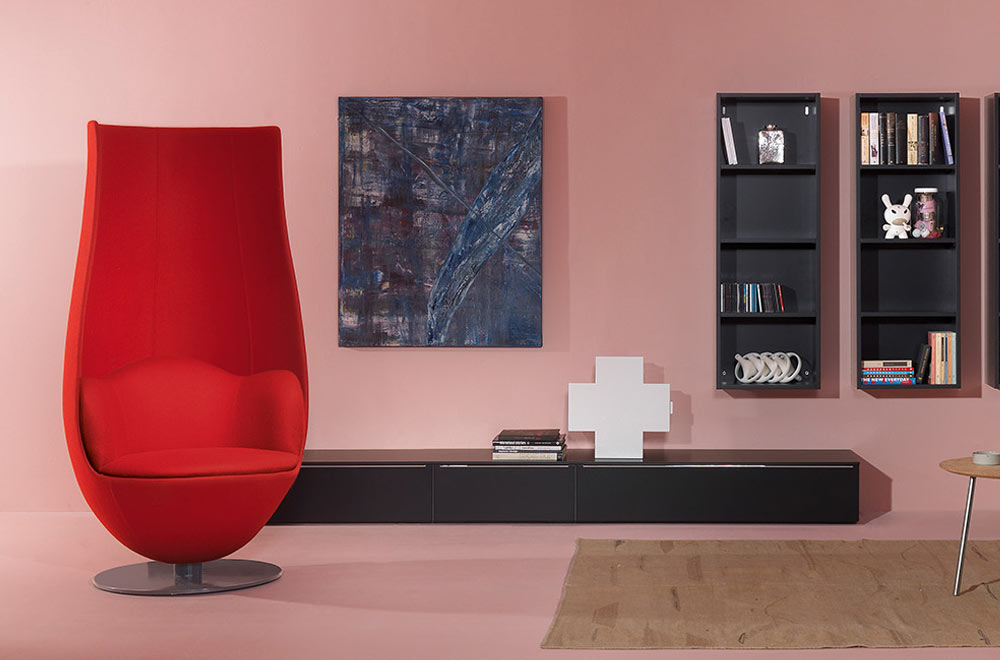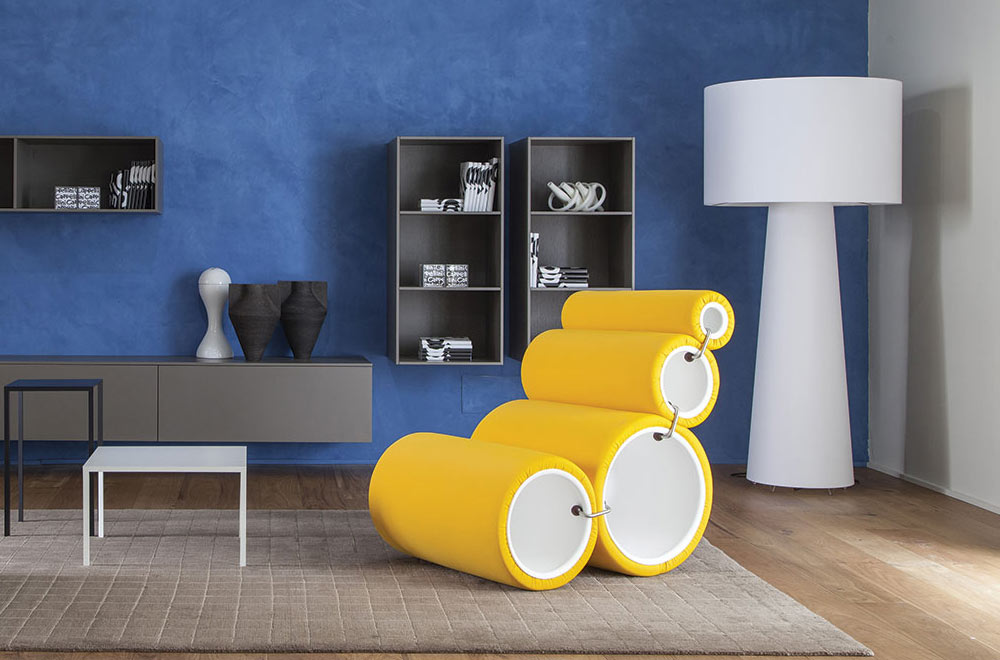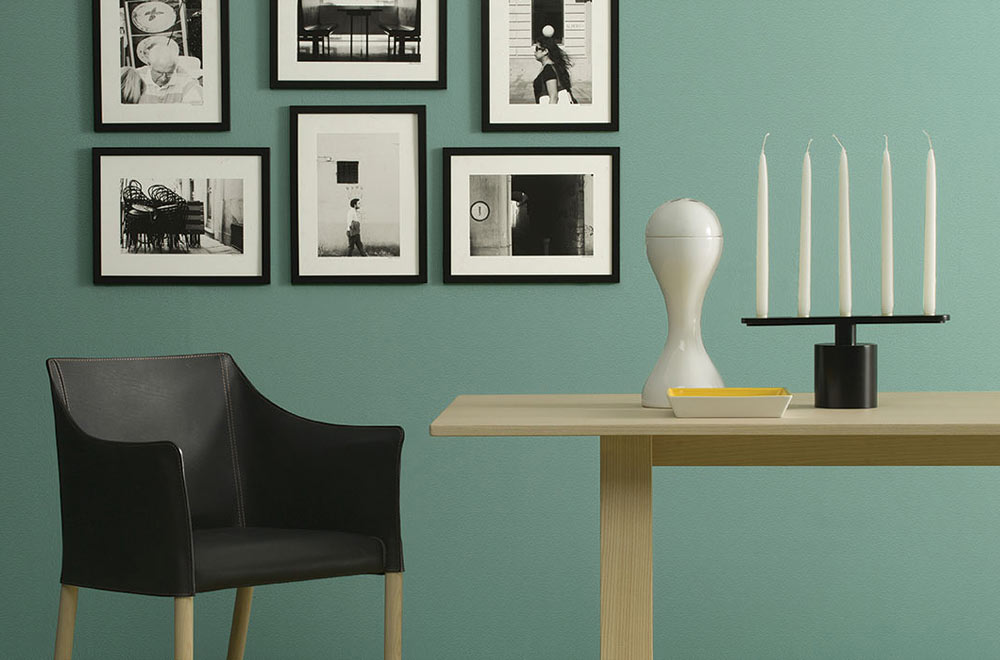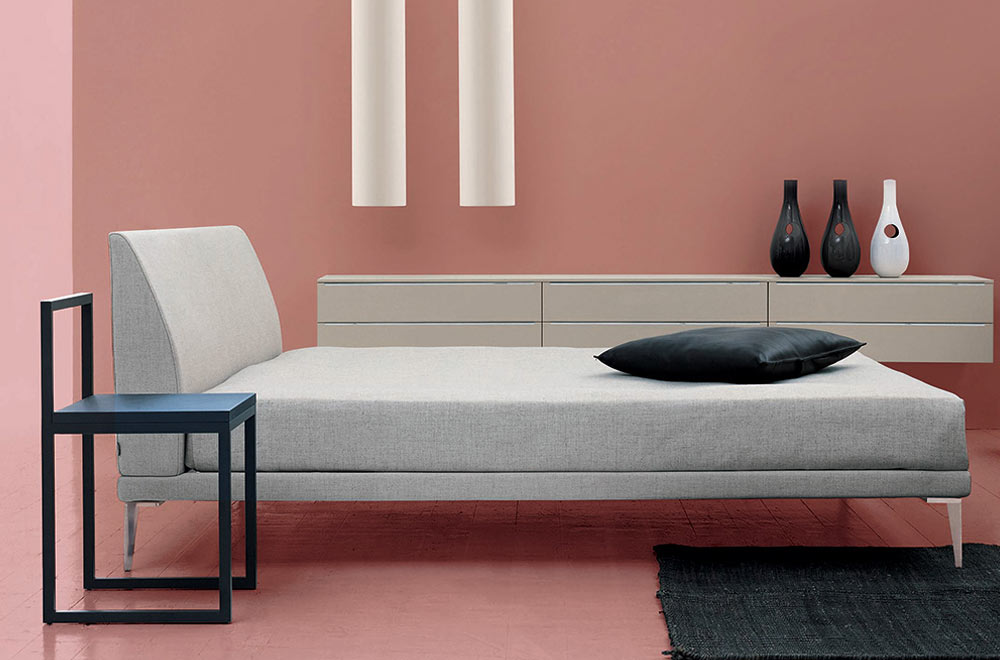Classic and contemporary stylistic elements define the Orla sofas and armchairs by Jasper Morrison, a masterpiece of contemporary design that has entered the collection of the Tate Modern, in London. Characterized by soft, sinuous lines, slender shells and generous, comfortable cushions, the Orla series is a tasteful addition to both domestic and contract settings.
The collection is composed of two and three-seaters, a rounded sofa (right or left), small or larger armchairs (fixed and swivelling), poufs. As of 2019, the family also includes a small two-seat sofa.
For Orla sofas and poufs, the structure is made of rigid composite polyurethane foam, with poplar plywood inserts and elastic belts; the Orla armchairs come with a fixed or swivelling structure made of foam. All versions are padded with multi-density polyurethane foam and fibre.
For the armchair and sofas, the cover of the structure is fixed, but removable for the cushions, and is available in the fabrics and leathers of the collection; for the small sofa and small armchair, the cover is fixed for both the structure and the cushions – all of which are also available in the fabrics and leathers in the collection.
Available in a range of fabric and leather upholstery. Contact us for more information.
- - Download ORL1
- - Download ORL1G
- - Download ORL2
- - Download ORL2S
- - Download ORL3
- - Download ORL4
- - Download ORL4G
- - Download ORL5
- - Download ORL6
- - Download ORL7
- - Download 2D
- - Download 3DM
- - Download 3DS
- - Download DWG
- - Download MAX
- - Download OBJ
- - Download Gallery
- - Download ORLA
- - Download ORLASOFA
Born in London in 1959, he graduated at the Royal College of Art and established his first design office in 1986. Immediately after this, he began his lasting and useful cooperation with Cappellini; nowadays, he works in London and in Paris for high level companies such as Alessi, Flos, Rowenta, Sony and Samsung. Each Morrison’s project has a minimal elegance which makes it strongly modern beeing a sort of archetype linked to past, favouring function on expression.











